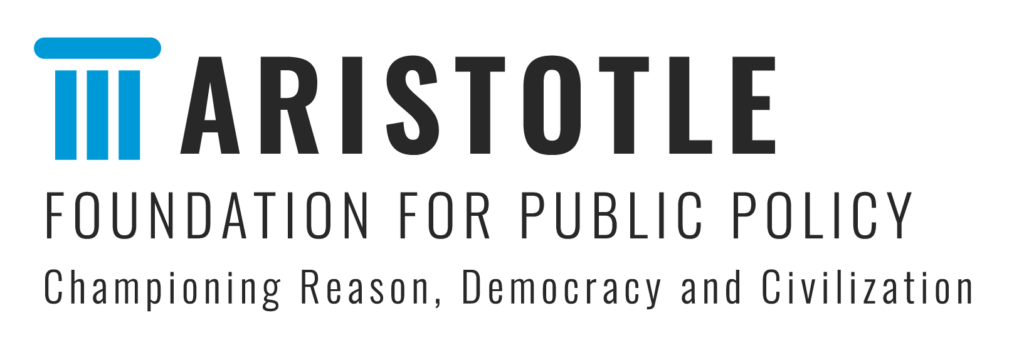
Three reasons why isolationists are wrong on Ukraine
Waller Newell, The Western Standard, July 20, 2023
The decision last week by the majority of U.S. congressmen and senators to continue to fund Ukraine’s efforts to defend itself— $300 million in security assistance for Ukraine authorized by the House of Representatives—was a welcome reminder that despite increasing isolationist noise from some American lawmakers, most see support for Ukraine as in the interest of their country, and the West more generally.
Thar $300 million was part of the annual defense appropriation but Representatives Marjorie Taylor Greene and Matt Gaetz both proposed amendments to strip that out. Greene’s measure lost 341 to 89 and Gaetz’s failed by 358 to 70, with a majority in both parties opposing such 1930s-style, neo-isolationism.
To grasp why the siren song of isolationism is on the rise, however, consider three reasons often advanced for opposing Western (including American, Canadian, and European) aid to Ukraine: Russia’s ostensible historic claim to Ukraine; past NATO/American promises; and Ukrainian corruption.
Russian President Vladimir Putin often contends that Ukraine is not a real country but part of Russia. This is unfounded. Beginning with the introduction of Christianity in 988, Kyiv became the spiritual capital of Rus and Ukraine was later conquered by Catherine the Great, but such conquests can hardly be the basis for the international order today. With the collapse of the Soviet Union in 1991, Ukraine became an independent country and its territorial integrity was guaranteed by the United States, the United Kingdom and Russia itself in the 1994 Budapest Memorandum. That commitment must be honored.
As for Putin’s claim that before the invasion, that NATO’s eastward expansion thus was aggressive and threatened Russia’s borders, this makes no sense unless Russia was not planning to live in peace with its neighbors.
How, for example, could living next door to a democracy like Poland or the Baltic Republic possibly endanger Russia? In fact, the aggression has mostly run the other way. It was the Soviet Union that invaded Poland in 1939 as part of the actualized Soviet Union/Nazi Germany secret Molotov-Ribbentrop pact that carved up Poland between the two tyrannies. It was also the Soviet Union that invaded and swallowed up the Baltic Republics—Estonia, Latvia, and Lithuania— in 1940.
Moreover, Putin’s claim that there was a written or tacit agreement in 1989 not to expand NATO eastward has been denied by then U.S. Secretary of State James Baker and then Russian President Mikhail Gorbachev.
On Ukrainian corruption, since the Maidan Uprising of 2013 and the expulsion of the pro-Russian oligarch Viktor Yanuvkoyvch, the current government has stepped up efforts to root it out. Ukrainian president Volodymyr Zelensky in fact fired a plethora of senior Ukrainian government officials this past January, in the midst of war, to try and root out such corruption.
For his entire time in power, Putin has tried to re-establish a Russian veto over the foreign policy of its former captive states, including weaponry. Putin does not want to restore the Soviet Union. He is an anti-Soviet authoritarian populist. Instead, Putin’s imperial agenda is aimed at gathering the Slavic peoples of Europe back into the fold of the motherland.
This utopian vision of a “new world” has been fed by his ideologues including Aleksandr Dugin, the Russian ultranationalist and political thinker. Dugin employs the blood and soil imagery of fascism, recycled from Martin Heidegger’s commitment to the Third Reich. Dugin’s influence and Putin’s endorsement of it are also why Putin’s claim that Volodymyr Zelensky—who is Jewish—heads a fascist regime, not only has zero basis in fact but instead is rather the reverse: the fascism is inherent in Dugin’s thinking and in Putin’s rhetoric.
If Putin is not expelled from Ukraine, he will not stop there but will go on to menace other democracies. It is why liberal democracies have a common interest in supporting Ukraine’s war effort.
Unfortunately, that view is not held as strongly as it once was in the Western democracies, the U.S. included. It is why the neo-isolationists, albeit a minority in the Republican Party, have abandoned Ronald Reagan’s policy that freedom had to be defended and supported both at home and abroad. Some isolationists like American journalist Mollie Hemingway only want America to avoid foreign entanglements, which has a pedigree stretching back to George Washington and Thomas Jefferson. Others like Tucker Carlson actually endorse Putin’s false historical claims about his right to invade.
If there is a bright spot in all this, it is that despots often start wars, but just as often they are crippled by them. Russia found this out the hard way in 1905 (the Russo-Japanese War) and 1979 (the Soviet invasion of Afghanistan). It almost happened again with Yevgeny Prighozin’s recent near-coup, which was Putin’s aggression in Ukraine boomeranging back against him at home.
Moreover, since Putin launched the invasion supposedly to halt NATO’s expansion, NATO has added new members on Russia’s borders. Putin has therefore only thwarted himself, but he still has to be expelled from his remaining finger-hold in eastern Ukraine. Once Ukraine is free of Putin’s menace, its future will be bright, and its values should be endorsed by liberals, conservatives, and libertarians alike.
Prof. Waller Newell is Professor of Political Science and Philosophy at Carleton University and a Senior Fellow at the Aristotle Foundation for Public Policy. His newest book is Tyranny and Revolution: Rousseau to Heidegger.
Like our work? Think more Canadians should see the facts? Please consider making a donation to the Aristotle Foundation.

The logo and text are signs that each alone and in combination are being used as unregistered trademarks owned by the Aristotle Foundation. All rights reserved.
SUBSCRIBE TO OUR NEWSLETTER
SUBSCRIBE TO OUR NEWSLETTER

are signs that are each alone and in combination are being used as unregistered trademarks owned by the Aristotle Foundation. All rights reserved.
SUBSCRIBE TO OUR NEWSLETTER

SUBSCRIBE TO OUR NEWSLETTER
